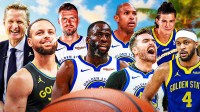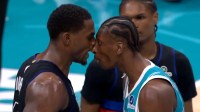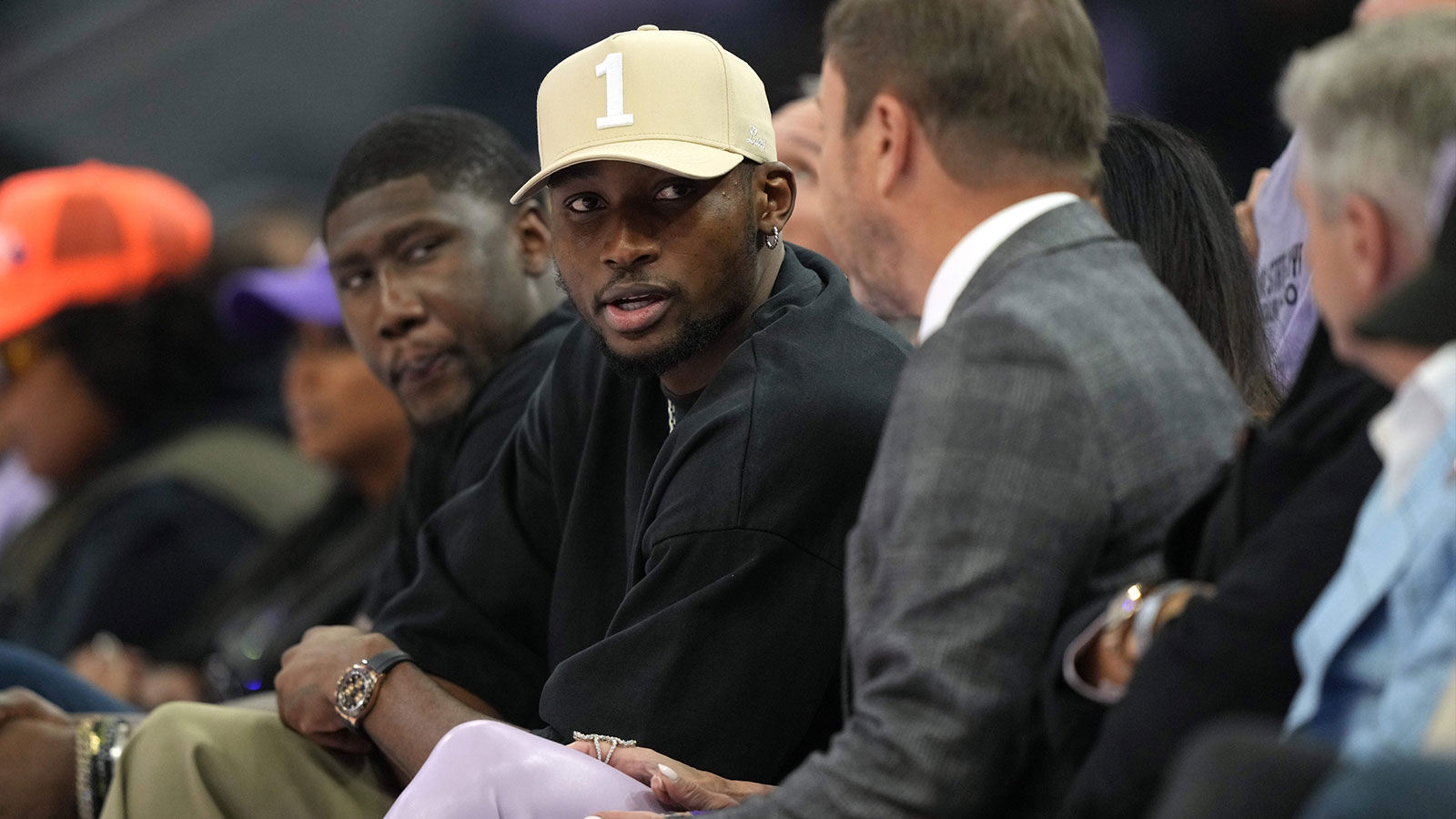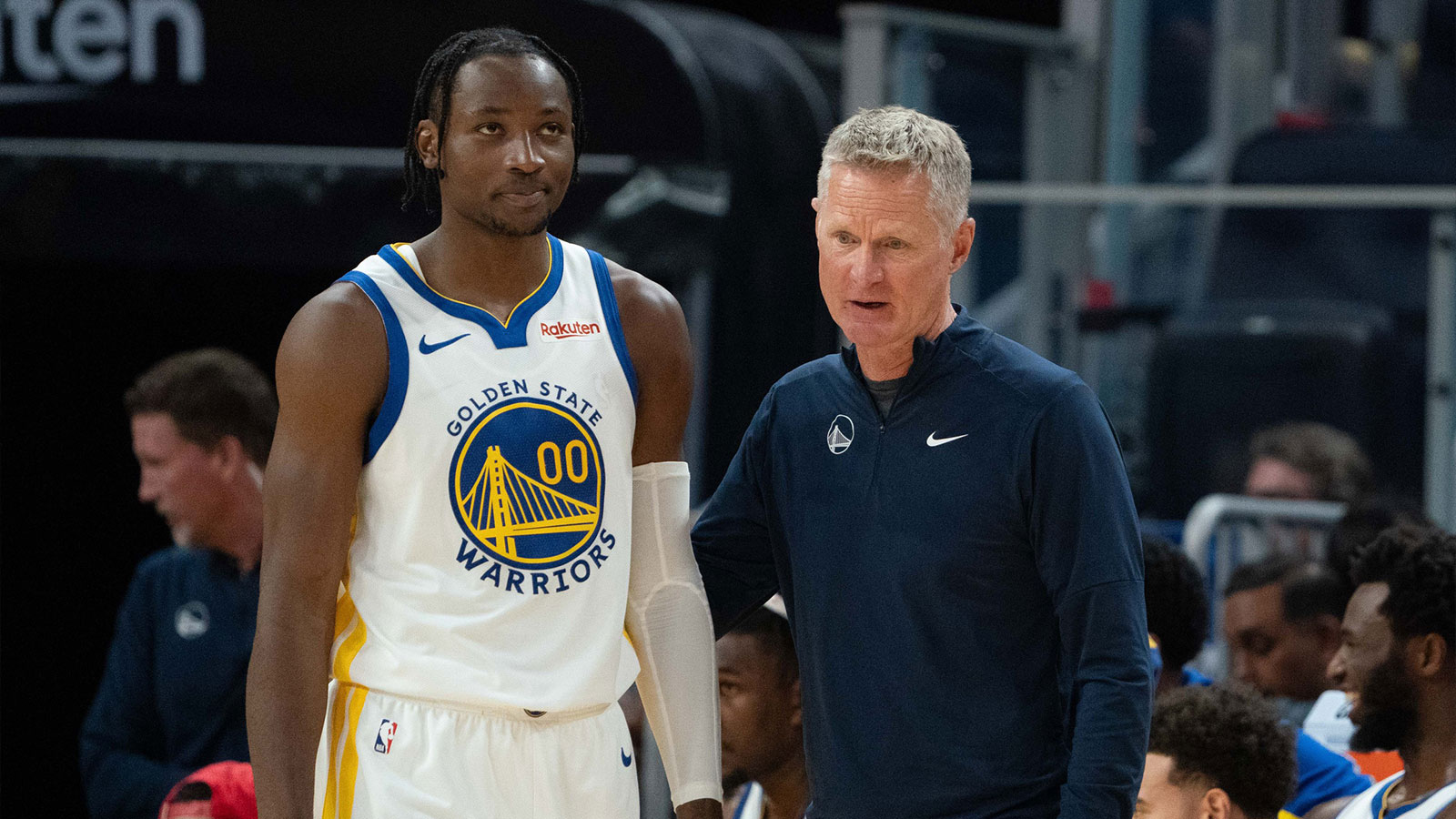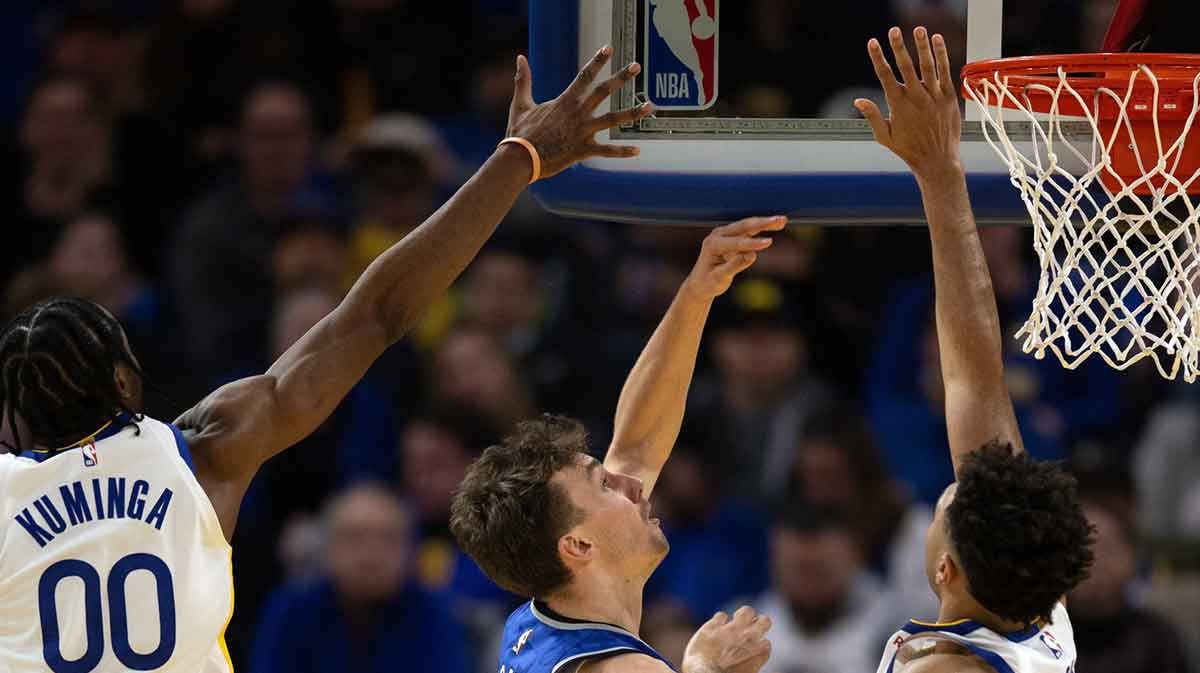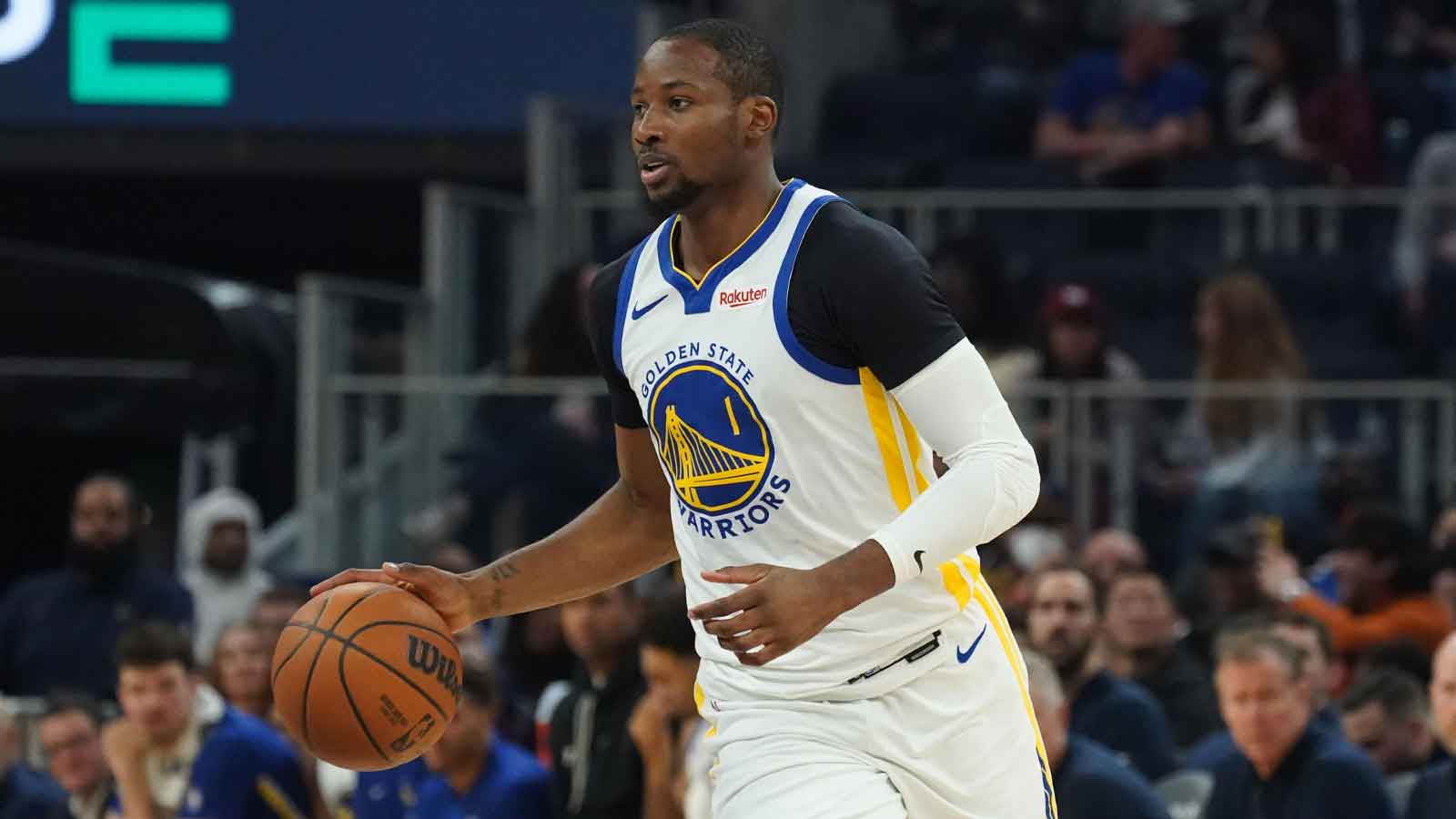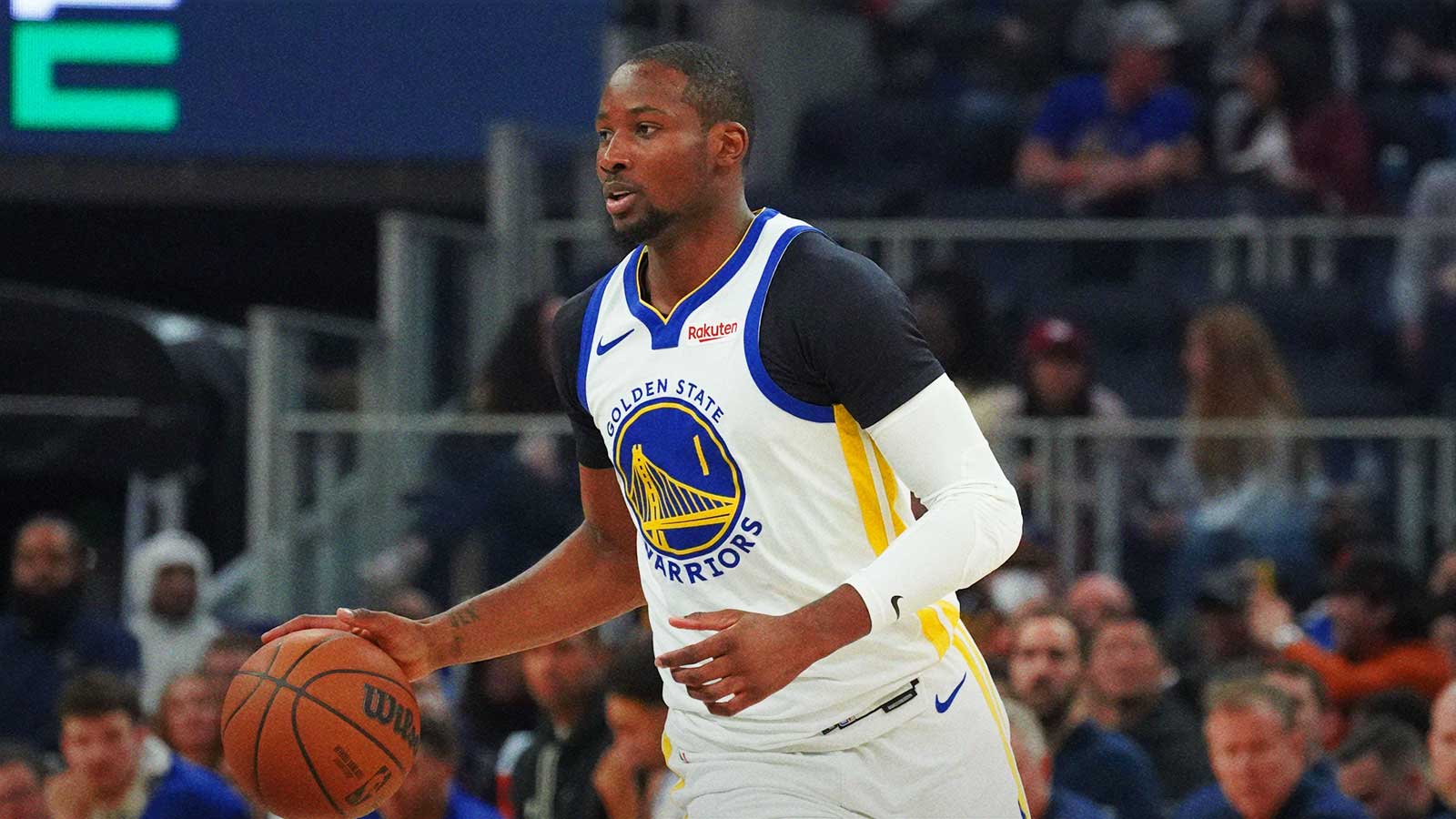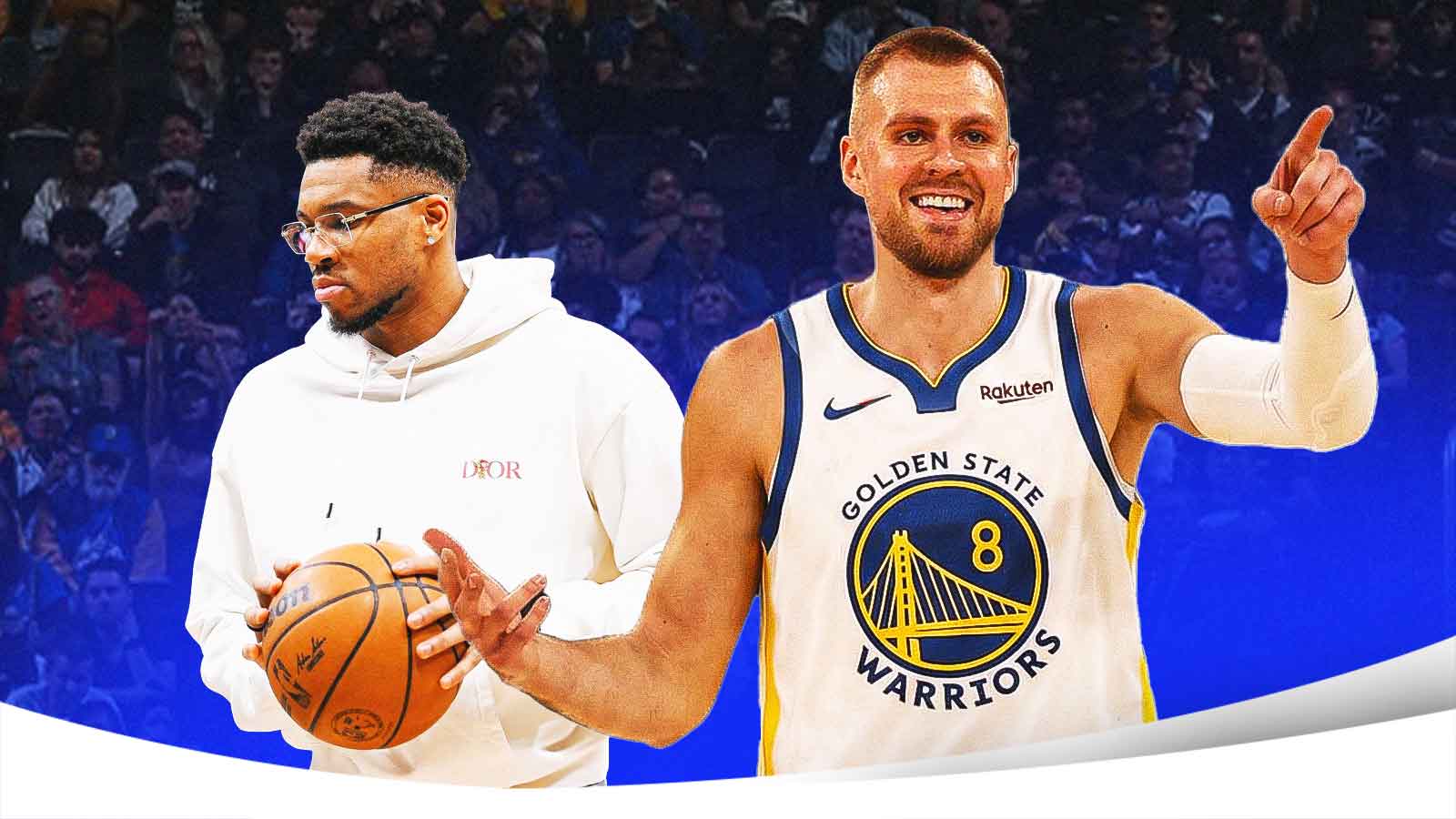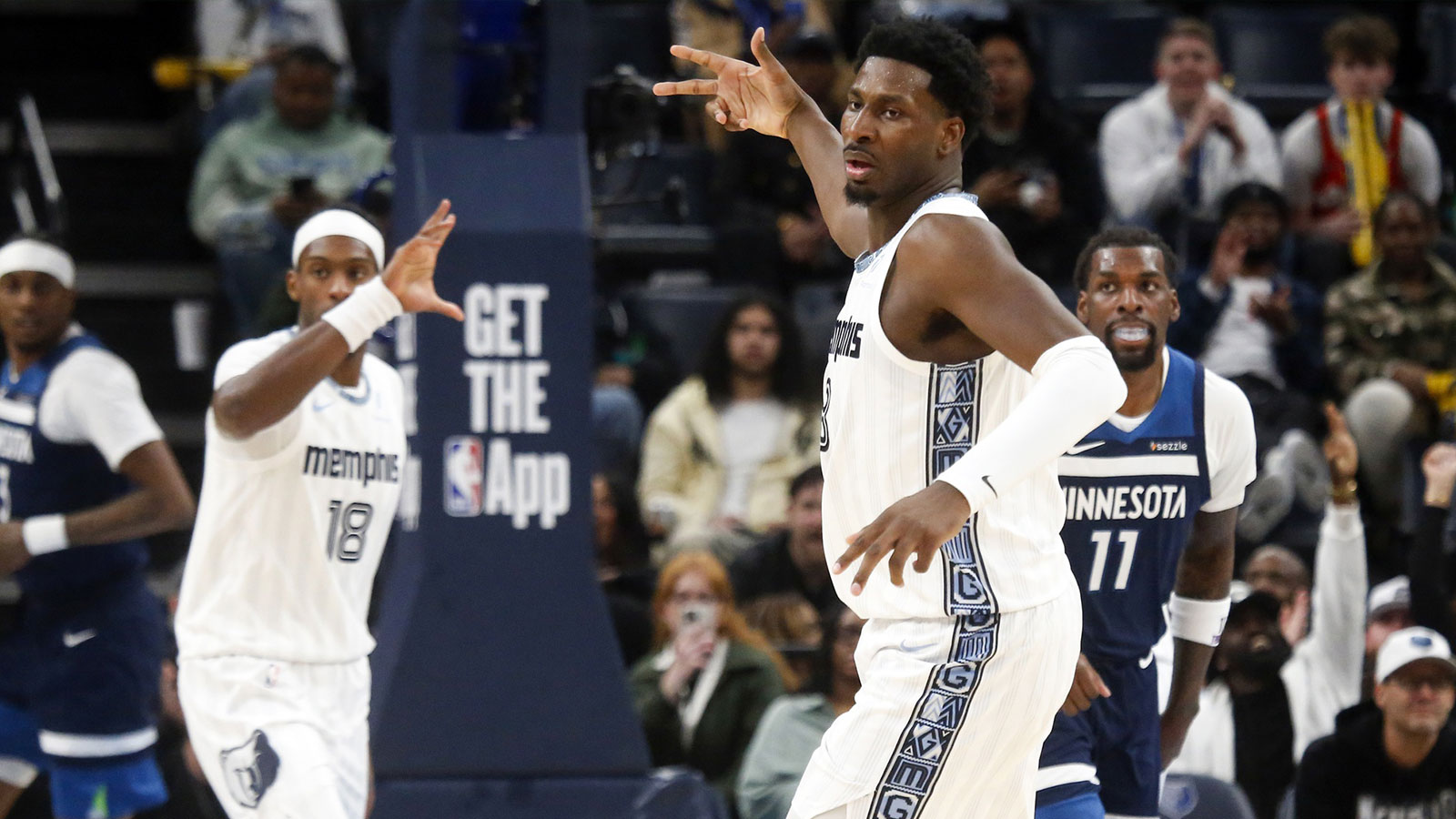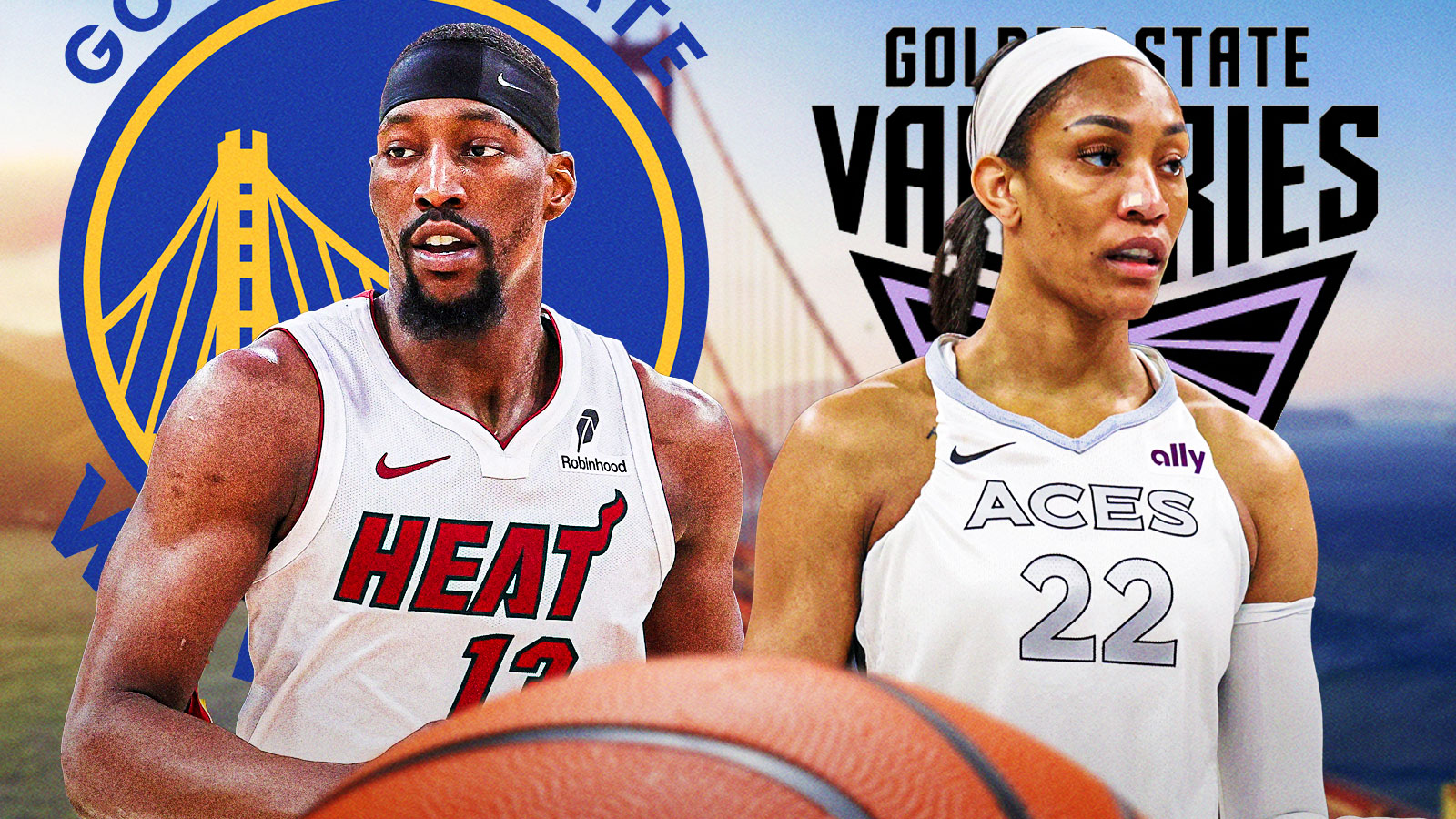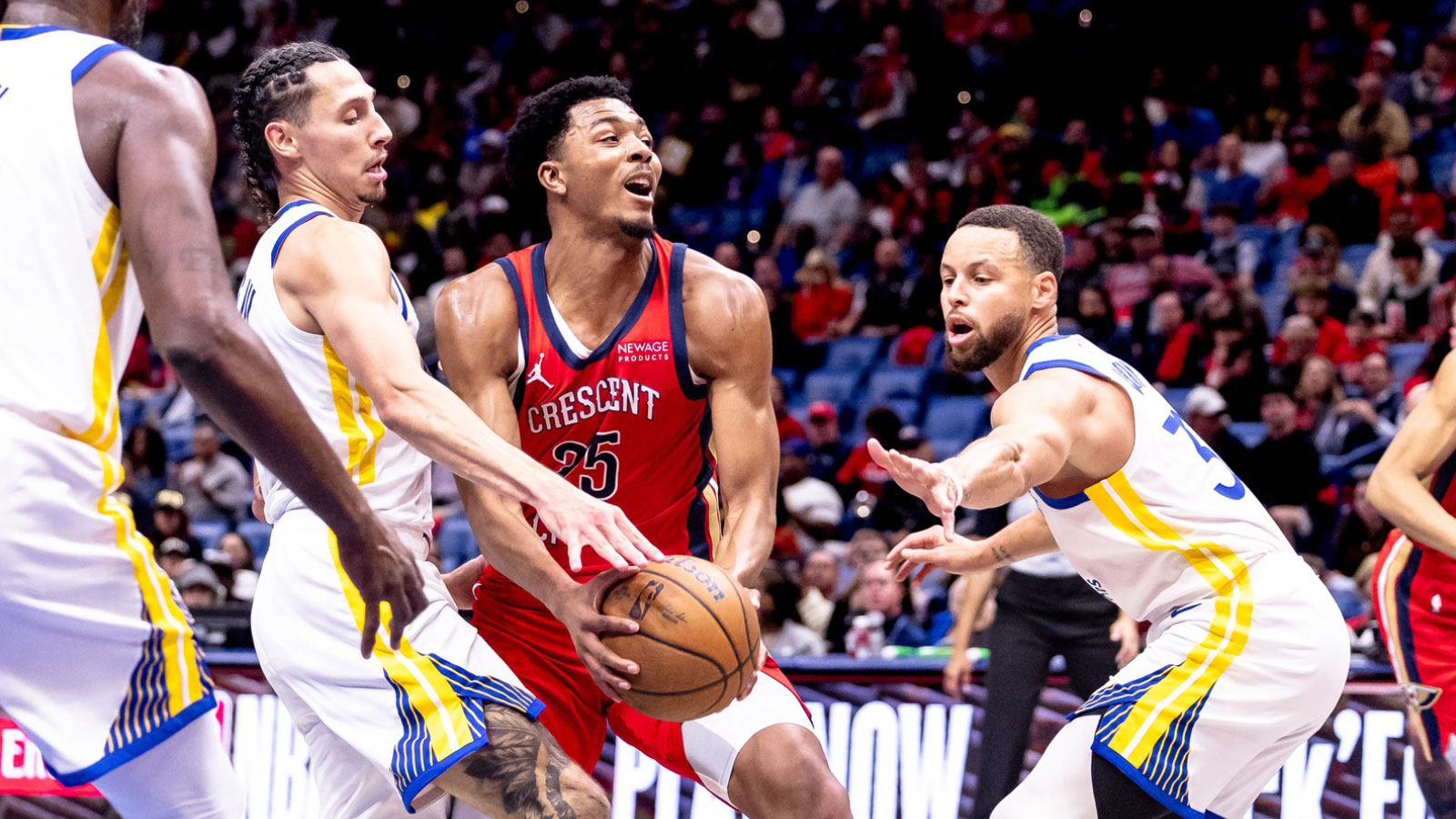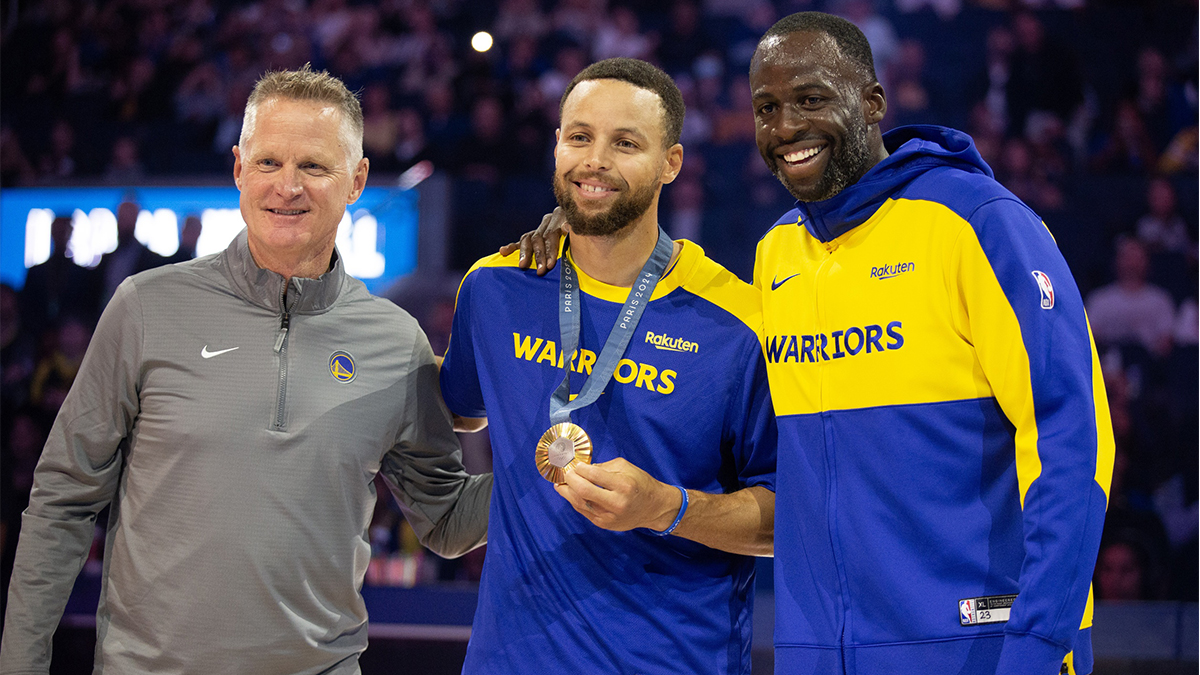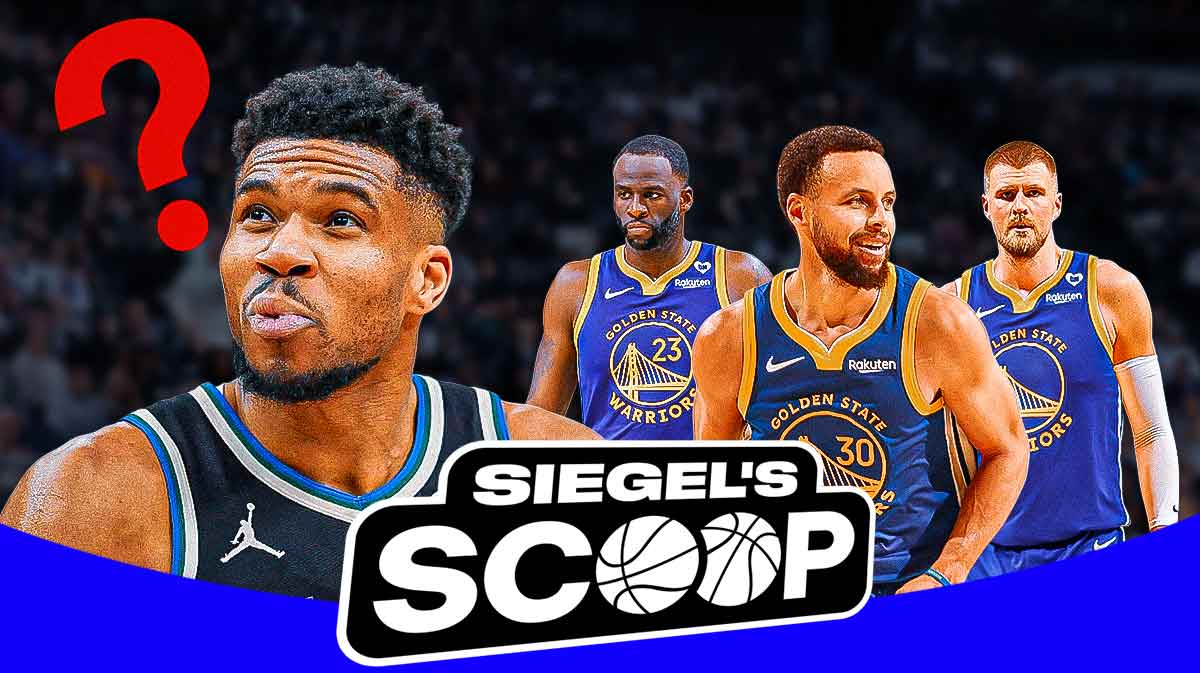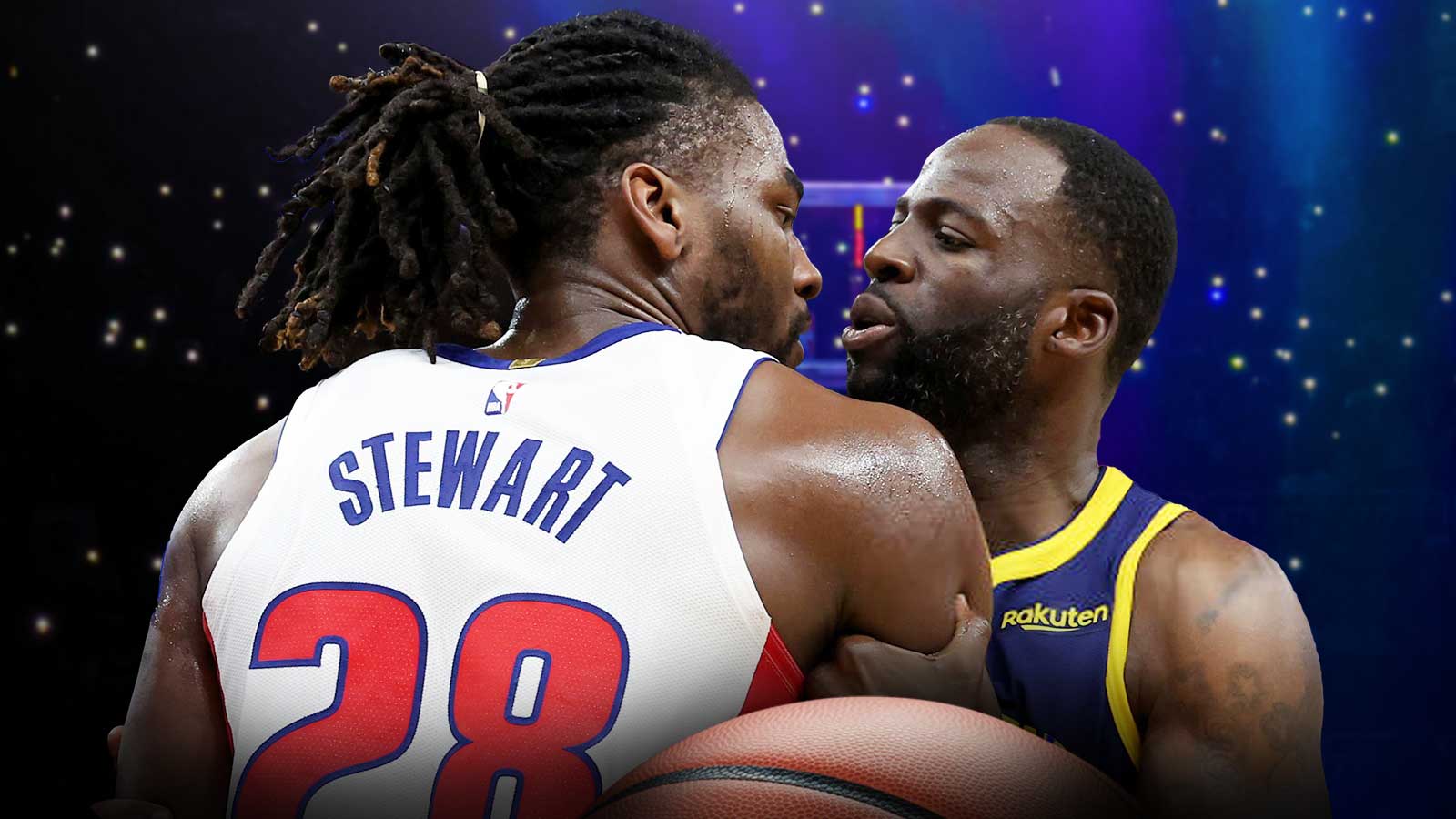Draymond Green wants to finish his career where it started.
He was always likely to decline a player option for 2023-24 in favor of one more big-money, multi-year deal that takes Green through his mid-30s. The preseason punch to Jordan Poole put his status with the Golden State Warriors in grave doubt. Even after a wholly disappointing season that ended largely the way it played out, though, Green's future seems in the Bay seems all but secured.
A report confirming the Warriors' intention to give Green a long-term contract this summer was published at The Athletic immediately after the defending champs were eliminated from the playoffs.
A typically defiant yet reflective Green then sat at the postgame podium, insisting the Dubs' dynasty wasn't over mere minutes after they were run off the floor by a Los Angeles Lakers team left for dead before the trade deadline.
“We’re not done yet,” he said. “Lost this year. We’ll be back next year.”
"This thing isn't maxed out… I'm riding out with the same guys I rode in with."
Draymond Green speaks on the future of the Warriors dynasty 👀
(via @TheVolumeSports)pic.twitter.com/F0lVjogowy
— ClutchPoints (@ClutchPoints) May 14, 2023
There's no denying Green's deficiencies played a part in Golden State's demise.
The Lakers ignored him off the ball, preying on Green's lack of shooting range by crunching the floor. His pick-and-roll chemistry with Stephen Curry is basketball poetry, but no panacea for Green's struggles to score from the perimeter or at the rim when defenses put two on the ball. At 33, he isn't the in-traffic rebounder he was a few years ago.
Net value of the peerless scheme flexibility Green provides defensively is curbed by the opposite dynamic on the other end.
He forced opponents into 51.1% shooting at the rim over the 82-game grind, second-best in the league behind Defensive Player of the Year Jaren Jackson Jr., then maintained those rim-protection numbers in the playoffs while serving as the Dubs' best option checking De'Aaron Fox, Domantas Sabonis, LeBron James and Anthony Davis one-on-one.
Green coined the distinction “16-game player” to separate individual performance in the regular season from the postseason pressure cooker. What do you call an All-NBA defender who can't stretch the floor or finish over length at the rim, broadly serving as an abject liability in halfcourt offense unless he's screening for the greatest shooter ever or playmaking off advantages created by him?
Golden State fared better with Green on the bench than on the court during these playoffs for the first time in his nine-year postseason career, per NBA.com/stats. There's inevitable noise to that eyebrow-raising disparity, like the fact the Dubs were stingier defensively with him sitting.
Green did nothing during his team's brief playoff run—with the notable exception of some wholly unnecessary fouling away from the play—to diminish the notion he remains an elite, game-changing defender in April, May and June. He's definitely not the only Warrior whose offensive utility depended on the presence of Curry, either.
How do the extent of Jordan Poole's playoff struggles and revealing recent admissions about his relationship with Green and the team at large post-punch factor in here?
Jordan Poole finally opened up a bit more about lingering effects of Draymond Green’s punch.https://t.co/V1hPWtfX8Z
— Warriors Nation (@WarriorNationCP) May 13, 2023
They're certainly part and parcel with the all-around connectedness this team never came close to mustering. You can't separate Green's negative influence in that regard from Poole's complete inability to find a lasting groove throughout 2022-23.
All signs point to Golden State running it back around its dynastic core for at least one more season, though. Poole's redundancies with Curry have been a problem in the playoffs two years running, and his extension kicking in next season is among many reasons why the Dubs' tax bill is set to hit numbers Joe Lacob has already deemed untenable.
The changes Golden State is poised to make this offseason likely start with Poole. Jonathan Kuminga could have a new NBA home by the time training camp tips off, too.
Could moving those prickly, inconsistent young players for proven, respected veterans chasing a ring help the Dubs' whole around Curry once again become bigger than the sum of its parts?
The harsh reality is that there's no alternative means of the Warriors winning a title anytime soon. They need that perfect alchemy to compete at the highest levels, and it's up to Bob Myers—or whoever will be running the Dubs' front office this summer and beyond—to put the right pieces in place for them to find it.
The price of paying franchise icons like Curry, Thompson and Green so late into their careers—even before the restrictive new CBA came into play—is the loss of financial wiggle room needed to make major changes that could vault Golden State back toward top-tier contention.
Letting Green walk in free agency wouldn't even get the Warriors out of the tax. His unique skill set means much more to the Dubs than any other team in the league. Trading Green would bring back a quarter on the dollar basketball-wise, not to mention leave Lacob in the same position of shelling out hundreds of millions in tax payments.
There's just no good answer for Golden State concerning Green other than the status quo. He's both the embodiment of the singular style that gave the Warriors a puncher's chance at defending their title this season and a totem of the off- and on-court issues that seemed to derail them back in early October and ultimately did in the second round of the playoffs.
Those extremes represent Green in a nutshell—just like he always has and is bound to continue representing the Dubs going forward.




